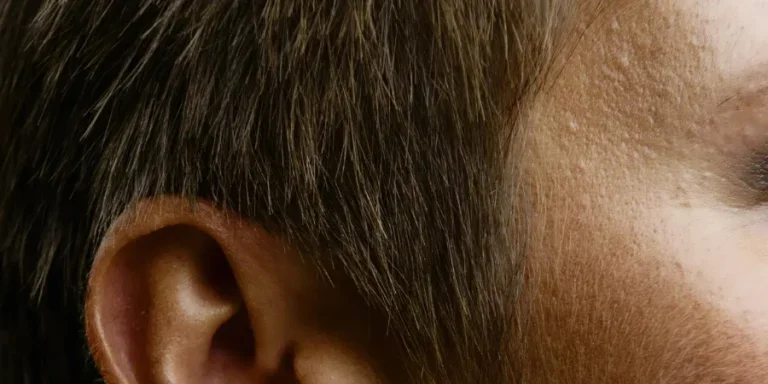Men lose their hair. This is a simple statement, backed by a vast amount of biomedical evidence. Men losing their hair can feel deflated. This is also a simple statement. It’s unfortunate that, as simple as these statements are, the subject of hair regrowth for men is so confusing. Certainly, the market is cluttered with heavily marketed products promising to deliver miracles. However, these offerings are not well understood and cannot be simply ignored. I hope this guide will help you cut through the fog and arrive at an informed opinion about hair regrowth for men. The information presented here is supported by evidence from the biomedical literature. It is balanced and has been constructively reviewed. This does not mean, of course, that there are no special-interest groups promoting their particular perspectives on solutions. However, the opinions presented here have been carefully considered and do not require special pleading.
Table of Contents:
1. Understanding hair loss in men
2. Effective treatments for hair regrowth
3. Natural remedies and their effectiveness
4. Lifestyle changes to promote hair health
5. Frequently asked questions about hair regrowth
Understanding hair loss in men

There are many reasons for why you might lose your hair (alopecia), including genetic, hormonal, nutritional and in response to stress. Identifying the source of your hair loss will inform your choice of treatment. If you are a man (or even if you are female), the likelihood that you will notice hair loss in the future and over some period of time will affect your choice of treatment. Male pattern hair loss, also called androgenetic alopecia, is the most common type of hair loss in men, with a characteristic pattern of receding hairline and the thinning of hair at the crown of the head.
Examining the biological explanations behind hair loss provides a more clear-cut answer, revealing that this condition is caused by DHT (dihydrotestosterone), the breakdown product of testosterone, which miniaturises hair follicles by producing finer and finer strands of hair until hair is completely lost. While both men and women are exposed to DHT, those with a genetic propensity for sensitivity toward DHT will invariably succumb to MPB.
Treatment for hair loss should be approached holistically – based on your overall health and lifestyle, and on the severity of your condition. Talk to your healthcare provider about the condition, and they can offer guidance for the right solutions for you.
Effective treatments for hair regrowth

Injectables, including a DHT-blocker, boost blood flow to promote hair growth Laser comb Light-based hair-growth treatment Vitamin B complex Appetite suppressants Many surgeries, including the highly advertised Follicular Unit Transplant Hair-plugs Topical solution – minoxidil Oral medication – finasteride DHT-blocker Combo-therapy (includes the combined use of laser and medication along with other treatments). Minoxidil is a topical solution for treating hair loss, acting by widening the blood vessels and improving blood flow to the hair follicles, thus promoting hair growth. Finasteride, on the other hand, is an oral medication that stops the formation of DHT, slowing down the rate of hair loss and stimulating regrowth.
A low-level laser therapy (LLLT) is a noninvasive technology that uses light to stimulate cell metabolism in the scalp to promote and regrow hair. The responses to using LLLT are variable and seem to depend on an individual’s ability to respond to this light activation of scalp cells that drive hair growth. Nevertheless, the experience has proven viable for many.
Other, more permanent, surgical options exist too, including hair transplant surgery, which moves hairs or follicular units from thicker areas of the scalp to thin or bald areas. While surgery can be good, you must still have realistic expectations, and understand the pros and cons with your chosen surgeon.
Natural remedies and their effectiveness

Due to the various side effects of medical hair regrowth products, many men are seeking natural remedies. Rosemary and peppermint oil have been shown to stimulate hair growth in both laboratory studies and human clinical trials. Scalp massages, through their effect on circulation, are another way of improving the overall environment under which hair grows.
Besides health, your diet plays an important role in growing healthy hair. Vitamin D and E, iron and omega-3 are some of the nutrients involved in good hair conditions. Keeping a balanced diet can contribute to your hair growth.
Natural remedies have their place, but expect reasonable results: they can be adjuncts to conventional treatments, but they usually won’t replace them. Ask your doctor for advice.
Lifestyle changes to promote hair health

Some lifestyle changes can have equally dramatic effects: stress management (meditation, regular exercise), adequate sleep and hydration – all of these will mitigate one of the principle causes of hair loss.
If your hair has been damaged from heat styling and chemical treatments, avoiding these practices can prevent further breakage. Overall, adopting a gentle, sulfate-free hair-care regimen can maintain the scalp’s natural oils and the health of your hair.
This is because good hair health arises from the inside of the body, and this is what nourishes hair. If men consider the care and keeping of hair as a whole – within and without – then they will achieve the best possible results. This will promote regrowth and reduce further loss.
Frequently asked questions about hair regrowth

While handling the persistent and nuanced questions of our readers every day, we sometimes forget that the person on the other side of the screen is often a man plagued by balding only because not enough information is available to address what works and in what manner. There are so many important and basic questions that need to be answered correctly in order to expedite hair regrowth for multitudes of otherwise healthy men. Here are a few: When can I expect to see the results of my treatment? What is the right approach for side-effects management if I run into them? How can I be sure that each case is evaluated and then treated the right way?
Conclusion:
Re-growing hair for men is a complex process that involves utilising effective treatments, natural remedies and lifestyle changes. Identifying the causes of hair loss and learning about available options can lead to an action plan that gives men the power to restore their hair. Although the process might take longer, the hope of having a healthy head of hair with a comprehensive care strategy, including treatments, is promising.




